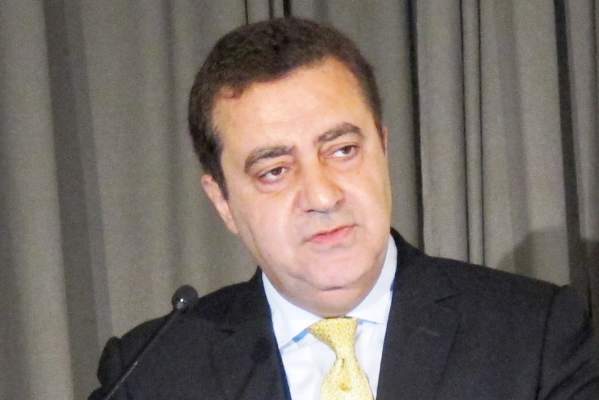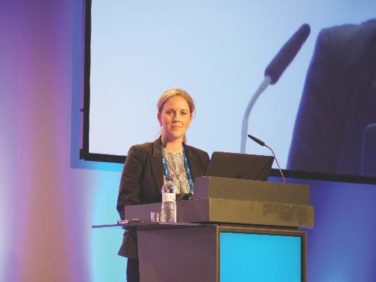AT THE EHA CONGRESS
COPENHAGEN (FRONTLINE MEDICAL NEWS) – Nivolumab may be an effective salvage therapy option for adults with Hodgkin lymphoma whose disease has progressed despite transplant and treatment with brentuximab vedotin, investigators reported.
In a subcohort of patients from the Checkmate 205 phase II trial, 80 patients with Hodgkin lymphoma who had disease progression following autologous stem cell transplant (ASCT) and brentuximab vedotin (Adcetris), nivolumab (Opdivo) therapy was associated with a 53% objective response rate according to independent reviewers, reported Dr. Anas Younes, chief of the lymphoma service at Memorial Sloan Kettering Cancer Center, New York.
“The PD-1 checkpoint inhibitor nivolumab is an important new treatment to address unmet needs in patients with classical Hodgkin lymphoma with progressive disease and limited treatment options, especially after autologous transplant,” he said at a briefing at the annual congress of the European Hematology Association.
Objective response rates as determined by both investigators and independent reviewers were “impressive,” and had “encouraging durability,” he added. The median duration of response at time of data cutoff was 7.8 months, and the majority of patients had ongoing responses at the time of the analysis, Dr. Younes said.
Nivolumab was recently approved by the Food and Drug Administration for the treatment of classical Hodgkin lymphoma that has relapsed or progressed after ASCT followed by brentuximab vedotin.
In the Checkmate 205 registrational trial, 80 patients (median age 37, range 18-72 years) were assigned to receive nivolumab 3 mg/kg intravenously every 2 weeks. Patients were evaluated for response by both an independent radiologic review committee (IRRC) and investigators, using 2007 International Working Group response criteria. After a median follow-up of 8.9 months, the IRRC-rated objective response rate, the primary endpoint, was 66%, including 8.8% complete remissions (CR), and 57.5% partial remissions (PR).
Dr. Younes showed a waterfall plot indicating that nearly all patients had some degree of tumor regression, and all but one patient among the responders had tumor reductions of 50% or greater from baseline.
Among 43 patients who had had no response to brentuximab vedotin, subsequent treatment with nivolumab was associated with an IRRC-rated objective response rate of 72%. As noted, the median duration of response was 7.8 months, and the median time to response was 2.1 months.
As of the last follow-up, 33 of the 53 patients with IRRC-rated responses had retained response. The IRRC-determined 6-month progression-free survival rate was 77%, and the overall survival rate was 99%.
In all, 72 patients (90%) had a treatment-related adverse event. The most common events occurring in 15% or more of patients were fatigue, infusion-related reactions, and rash. Most of the immune-mediated adverse events were of low grade and manageable, and there were no treatment-related deaths, Dr. Younes said.
Briefing moderator Dr. Anton Hagenbeek, professor of hematology at the University of Amsterdam, who was not involved in the study, asked whether nivolumab can be considered as a bridge to other therapies in this population.
Dr. Younes said that the “natural progression of a single-agent therapy that has efficacy is to combine it with other active agents, or use maybe in the adjuvant or maintenance setting in certain circumstances.”
“I don’t expect single-agent nivolumab to cure our patients,” he added.
A similarly designed clinical trial, MK-3457-087/KEYNOTE-087 , is exploring the use of pembrolizumab (Keytruda). This trial is ongoing but does not have published data as yet.
Checkmate 205 is sponsored by Bristol-Myers Squibb. Dr. Younes has served as a consultant/advisor, received honoraria and/or research funding from Gilead Sciences, Curis, Incyte, Janssen, Seattle Genetics, Novartis, Celgene, Millennium, and Sanofi. Dr. Hagenbeek reported no relevant disclosures.






